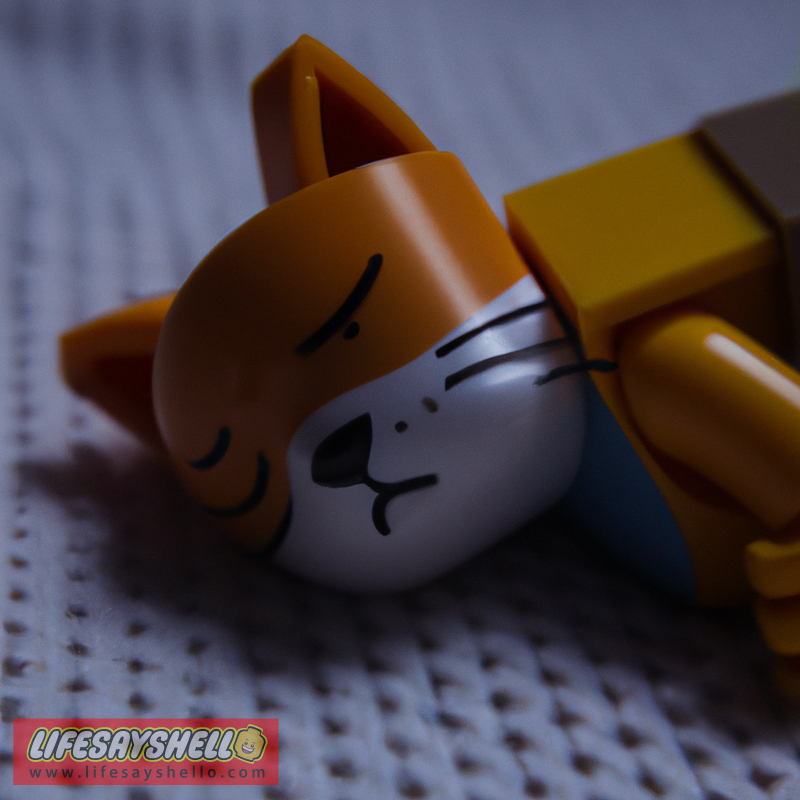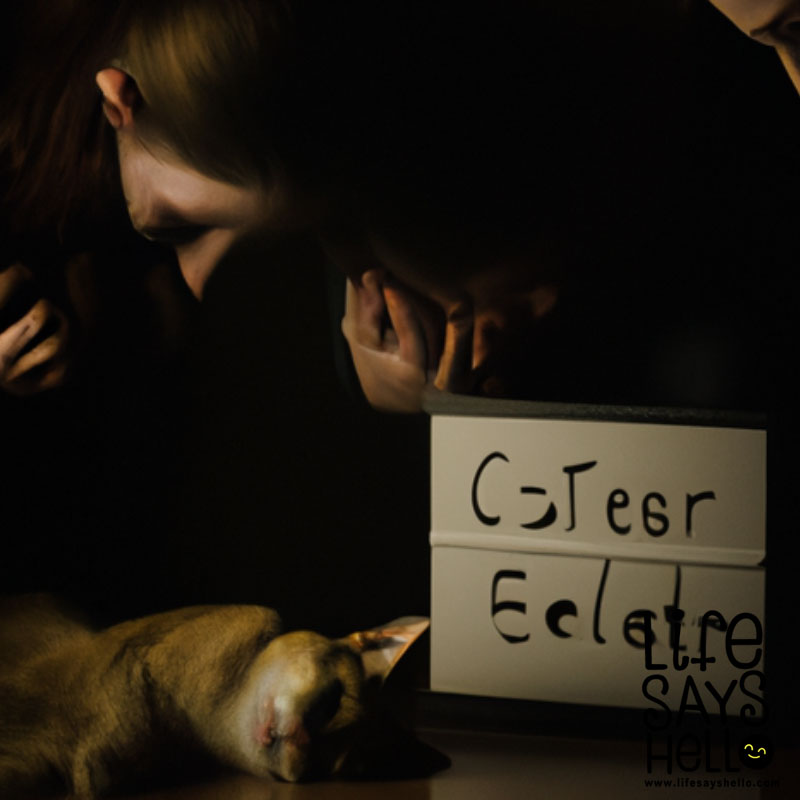The Secret Lives of Sleeping Cats: Why Does Your Cat Sleep So Much?

Have you ever wondered why your cat sleeps so much? It may seem like all they do is eat, sleep, and lounge around all day while you're hard at work. But that long cat nap is not just your feline friend being lazy. Sleep is a vital part of a cat's daily routine and is key to their health and happiness.
On average, cats sleep around 15 hours per day. That means they are asleep for more than half of their lives! While that might seem extreme compared to a human's 7-8 hours of sleep, it's perfectly normal for our furry companions. Understanding your cat's sleep patterns provides insight into their behavior and well-being. Read on to unravel the mysteries of your cat's sleeping habits!
A Cat's Wild Instincts Drive Their Desire for Sleep
Cats are predators, even if your pet cat's idea of hunting is begging for treats. As descendants of fierce big cats like lions and tigers, domestic cats retain their wild instincts to hunt and kill prey. This evolutionary background is the root of your cat's drive to sleep their days away.
Out in the wild, big cats like leopards must conserve their energy in between meals. After all, they never know when or where they will encounter their next antelope or zebra. Expending energy unnecessarily by wandering around all day would be counterproductive to their survival.
Cats have evolved to sleep deeply for long stretches to store up energy. That way, when an opportunity to chase down dinner presents itself, they can spring into action and pounce! A well-rested cat has the stamina for short bursts of intense activity while hunting.
So when your spoiled house cat snoozes the afternoon away, they are simply obeying their natural programming. Their wild cousins may sleep after feasting to prepare for the next hunt. Domestic cats don't have to hunt for food, but that urge to nap and recharge persists all the same.
The Majority of Cat Sleep is Light Dozing
You might think your cat is dead to the world when they're curled up in a furry blob on your lap. But their sleep is not as deep as you would expect. Surprisingly, close to 75% of a cat's sleep time is spent in light dozing rather than deep sleep.
When cats are snoozing lightly, their eyes may be half open. Their ears will continue to twitch and rotate, listening for noises that could indicate danger or prey. This allows them to get the rest their bodies crave while still remaining alert to their surroundings.
Light sleep provides all the benefits of resting while allowing cats to spring into action. If a noise startles them awake, they can instantly be on high alert. Try clapping your hands loudly next to a napping kitty, and you'll witness this catlike reflex!
Meanwhile, deep REM sleep makes up around 25% or less of total sleep time for cats. During deep sleep, their eyes are fully closed, muscles totally relaxed, and brain waves slow down. This is when your cat will be completely dead to the world.
Since light dozing dominates their sleep time, cats rarely sleep soundly for more than 30 minutes at a time. Their natural watchfulness means those long cat naps are peppered with brief moments of alertness to check for threats.
Kittens and Senior Cats Sleep the Days Away
While the average cat sleeps around 15 hours per day, the exact amount varies significantly based on their age. The very young and very old end of the spectrum tend to sleep longer hours.
For kittens, sleep is extremely important to aid their rapid growth and development. A kitten may sleep upwards of 20 hours per day! All of that sleep allows their little bodies to conserve energy for maturing.
As cats grow into adulthood, their sleep needs decrease. Most adult cats between 3 and 10 years old sleep 13-16 hours per day. They are at their peak activity levels during this stage of life.
On the other end of the spectrum, senior cats tend to sleep more like kittens. An older cat over 10 years of age may sleep around 18 hours per day. As cats grow less active in their golden years, the increased hours of sleep help them conserve energy and stay comfortable.
Cats also sleep more as they near the end of their lives. At this stage, nearly constant sleep may indicate fatigue from illness or simply a low energy level in elderly cats. Extra sleep provides comfort and respite for senior cats.
So while 15 hours is the average sleep time for adult cats, the young and the old buck that trend. Kittens need extra sleep to grow, while senior cats sleep to preserve declining energy reserves. The sleep schedule of your cat can provide clues to their current life stage.
What is the Magic Number of Sleep Hours for Cats?
Now that you know kittens and seniors sleep more than the average cat, you may be wondering what the ideal sleep range is. How can you tell if your cat is getting too much or too little shut-eye?
There is no universal magic number of sleep hours that is normal for all cats. Each feline has unique sleep requirements based on factors like age, breed, and overall health.
A good baseline is 13-16 hours of sleep per day for adult cats. But some especially active breeds like Siamese may only sleep around 10-13 hours. It largely depends on the energy level of each unique cat.
The most important thing is to understand your own cat's regular sleep patterns. If your cat normally sleeps 16 hours a day, a sudden decrease to 10 hours could signal an issue. Likewise, if your cat hits 20 hours of sleep when they used to sleep just 14, that could also be abnormal.
Significant increases or decreases in a cat's usual sleep schedule can provide clues about their health. Which brings us to the importance of watching for changes in sleep behaviors.
Look Out for Sudden Changes in Sleep Habits
While cats love to sleep, drastic changes in their normal sleep routine can be problematic. If you notice your cat sleeping substantially more or less than usual, pay attention. Changing sleep behaviors often indicate an underlying issue.
For example, a cat who suddenly sleeps the entire day and night may be dealing with an illness. Conditions like kidney disease or hyperthyroidism can cause extreme lethargy.
Meanwhile, a previously sleepy cat who is suddenly restless, pacing, and unable to sleep may be distressed or in pain. Conditions like arthritis or cognitive decline could be keeping them awake.
Cats also sleep more when recuperating from trauma or surgery. And certain medications may cause drowsiness or sleeplessness. Any abrupt sleep changes without obvious explanation warrant a trip to the vet.
Significant sleep pattern changes may also indicate mental health issues. For instance, a depressed or anxious cat may withdraw and sleep excessively. Cats dealing with stress also tend to hide and sleep more.
In rare cases, a cat sleeping too much can be a sign of poisoning or head trauma from an accident. Excess sleep paired with vomiting, trouble balancing, or apparent disorientation is an emergency.
The bottom line is to know your cat's typical sleep habits. Track any major increases or decreases in sleep duration that last more than a day or two. Consult your vet promptly to diagnose the reason behind unusual sleepiness or insomnia.
Warning Signs Your Cat is Not Sleeping Enough
Aside from simply not sleeping as much as usual, how can you tell if your cat is not getting sufficient shuteye? Here are some symptoms that may indicate your kitty is sleep deprived:
Restlessness - An inability to get comfortable and constant fidgeting shows your cat can't settle in to sleep.
Snoring - Congestion or respiratory issues that lead to snoring can disrupt your cat's sleep.
Lethargy - If your cat has low energy and is abnormally sleepy during their usual awake times, it often stems from lack of sleep.
Irritability - Cats need their beauty rest. Look out for unusual grouchiness, aggression, or other mood changes.
Lack of grooming - When cats are sleep deprived, they tend to neglect grooming behaviors.
Increased vocalization - Excessive meowing or crying can indicate a distressed cat who can't sleep.
Accidents outside the litter box - Inappropriate urination or defecation may happen if your sleepy cat can't make it to the box.
Pacing and restlessness at night - Your cat desperately wants to sleep but can't get comfortable.
Appetite changes - Lack of sleep often causes decreased appetite due to lethargy.
If you observe any of these symptoms in your formerly restful cat, take action. First, identify what may be disturbing their sleep. Noise, light, stress, illness, and other factors could be at play.
Try addressing those issues and monitoring your cat's sleep for improvement. If the symptoms persist more than 2-3 days, take your cat to the vet for an examination. With treatment for the underlying cause, your sleepy companion will be happily snoozing again.
The Vital Importance of Sleep for Cats
Now that you understand why cats need so much sleep, you can better support healthy sleeping habits for your feline companion:
Stick to a routine - Cats thrive on regular schedules for feeding, playtime, and sleep.
Ensure comfort - Provide soft, warm sleeping spots away from noise and activity.
Limit disturbances - Let sleeping cats lie! Don't disrupt their rest without good reason.
Check with your vet - If you have any concerns about sleep changes, consult your veterinarian right away.
Consider supplements - Catnip, CBD oils, or calming treats can promote sleep.
Address stress triggers - Help anxious cats relax by reducing what stresses them out.
Rule out pain - Physical discomfort makes it hard for cats to sleep soundly.
By honoring your cat's natural drive to sleep and making rest a priority, you will have a happier, healthier kitty. The next time you see your cat snoozing the day away, remember they are simply listening to their wild instincts. Let them cat nap in peace and catch up on some zzz's!




Comments